Terms and Conditions
Terms and Conditions
I. General
-
These terms and conditions apply exclusively to all offers, contracts, deliveries, and other services, including consultancy and information services. By placing an order, the buyer agrees to these terms in full.
-
Deviating agreements are only valid if they are explicitly agreed upon and confirmed in writing. The supplier is not bound by the buyer’s purchasing conditions, even if not explicitly contradicted.
-
Unless otherwise agreed, these terms apply to all current and future business relations, even if not specifically referenced in individual orders within an ongoing business relationship.
II. Offer and Contract Conclusion
-
All offers are non-binding. Orders require written confirmation to be legally valid, and the content of this confirmation governs the contractual relationship. An order becomes binding once delivered. Oral or telephone agreements, as well as arrangements with representatives, only become legally binding when confirmed in writing.
-
Documents related to the offer, such as illustrations, drawings, and weight or dimension details, are only approximate unless expressly stated as binding. The supplier retains ownership and copyright of cost estimates, drawings, and other documents, and they must not be made accessible to third parties without the supplier’s consent.
III. Prices and Payment
-
Prices are quoted in EUR and apply ex-works, excluding packaging. VAT will be added at the applicable statutory rate. For sales not conducted in EUR, the buyer assumes the exchange rate risk from the date of the supplier’s sales confirmation until full payment.
-
Invoices are payable within 30 days from the invoice date without deductions. A 2% discount is granted for payments made within 10 days, provided no other outstanding claims exist against the buyer.
-
Payments made using a bill of exchange are only considered fulfilled once the bill is honored and the supplier is released from liability.
-
A minimum order surcharge of EUR 50 applies for orders with a value of EUR 100 or less.
-
If the buyer defaults on payment, the supplier is entitled to charge interest on arrears from the due date, with a minimum rate of 5% above the base rate.
-
In case of payment default, the supplier may withdraw from all contracts with the buyer. Any deferred or outstanding payments become immediately due.
IV. Delivery, Risk Transfer, and Acceptance
-
Risk passes to the buyer upon dispatch of the goods, even if partial deliveries are made or other services, such as transport or installation, are undertaken.
-
Delivery deadlines are considered met if the goods have left the supplier’s premises or readiness for dispatch has been communicated by the agreed time.
V. Securities
- If the buyer falls behind on payments or if the supplier becomes aware of circumstances that reduce the buyer’s creditworthiness, the supplier may demand immediate payment or security before continuing with further deliveries.
VI. Warranty Provisions
- The supplier ensures high-quality standards for all m-tec® products. If the buyer has a valid complaint, they are entitled to warranty claims, provided the product is returned to the supplier.
VII. Right of Withdrawal
- The buyer may withdraw from the contract if delivery becomes permanently impossible before the transfer of risk.
VIII. Retention of Title
- The supplier retains ownership of the delivered goods until full payment is received.
IX. Jurisdiction, Applicable Law, Data Protection
- The place of performance for all deliveries and services is the supplier’s location.
X. Severability Clause
- Should any provisions of these terms be invalid, the validity of the rest of the contract remains unaffected.
§ 1 General – Scope
(1) Our terms and conditions of purchase apply exclusively; we do not recognize any terms and conditions of the supplier that are contrary to or deviate from our terms and conditions of purchase, unless we have explicitly agreed to their validity in writing. Our terms and conditions of purchase also apply if we accept the supplier’s delivery unconditionally, in full awareness of any contrary or deviating conditions of the supplier.
(2) All agreements made between us and the supplier for the purpose of executing this contract must be recorded in writing within this contract.
(3) Our terms and conditions of purchase apply only to business transactions with entrepreneurs in accordance with § 310 para. 4 BGB (German Civil Code).
§ 2 Offer – Offer Documentation
(1) The supplier is obligated to accept our order within a period of 2 weeks.
(2) We retain ownership and copyright of illustrations, drawings, calculations, and other documents; they may not be made accessible to third parties without our express written consent. They are to be used solely for production based on our order; after the order has been completed, they are to be returned to us without request. They must be kept confidential from third parties; in this regard, the provisions of § 9 para. (4) apply in addition.
§ 3 Prices – Terms of Payment
(1) The price stated in the order is binding. Unless otherwise agreed in writing, the price includes delivery “free to door,” including packaging. The return of packaging requires a special agreement.
(2) The statutory value-added tax is not included in the price.
(3) We can only process invoices if they specify the order number stated in our order in accordance with the requirements; the supplier is responsible for all consequences arising from failure to comply with this obligation, unless they can prove that they are not responsible for the error.
(4) Unless otherwise agreed in writing, we will pay the purchase price within 14 days from delivery and receipt of the invoice with a 3% discount, or within 30 days of receiving the invoice net.
(5) The transport insurance is handled by us.
(6) We are entitled to set-off and retention rights to the extent provided by law.
§ 4 Delivery Time
(1) The delivery time stated in the order is binding.
(2) The supplier is obliged to inform us immediately in writing if circumstances arise or become apparent to them that indicate the agreed delivery time cannot be met.
(3) In the event of a delay in delivery, we are entitled to the statutory claims. In particular, we are entitled, after the expiration of a reasonable grace period, to demand compensation for damages instead of performance and to withdraw from the contract. If we claim damages, the supplier has the right to prove that they are not responsible for the breach of obligation.
(4) We only accept early deliveries or partial deliveries in individual cases or when this has been expressly agreed. Otherwise, we have the right to return the delivery at the supplier’s expense. Even if we accept such deliveries, we are not obliged to make early payments.
§ 5 Transfer of Risk – Documents
(1) Unless otherwise agreed in writing, delivery must be made free to door.
(2) The supplier is obliged to indicate our exact order number on all shipping papers, delivery notes, and invoices; if they fail to do so, any delays in processing will not be our responsibility.
(3) The risk transfers to us upon arrival of the delivery at the place of receipt or, if acceptance is agreed or required by law, upon acceptance.
§ 6 Inspection for Defects – Liability for Defects
(1) We are obligated to inspect the goods for any quality or quantity deviations within a reasonable period; the complaint is timely if it reaches the supplier within a period of 5 working days from the receipt of goods, or in the case of hidden defects, from their discovery.
(2) We are entitled to the full statutory claims for defects; in any case, we are entitled to request, at our option, either rectification of defects or delivery of new goods. The right to claim damages, particularly damages instead of performance, remains expressly reserved.
(3) We are entitled to remedy the defects ourselves at the supplier’s expense in cases of urgency or special urgency.
(4) The limitation period for claims is 36 months, starting from the transfer of risk.
§ 7 Product Liability – Indemnification – Liability Insurance
(1) If the supplier is responsible for a product defect, they are obliged to indemnify us from any third-party claims for damages upon first demand, as far as the cause lies within their domain and organizational area, and they are liable externally.
(2) As part of their liability for damages under para. (1), the supplier is also obliged to reimburse us for any expenses arising from or in connection with a recall action carried out by us, pursuant to §§ 683, 670 BGB, and §§ 830, 840, 426 BGB. We will inform the supplier of the content and scope of recall measures, to the extent possible and reasonable, and give them the opportunity to respond. Other statutory claims remain unaffected.
(3) The supplier agrees to maintain product liability insurance with a coverage amount of €10 million per personal injury/property damage on an aggregate basis; if we are entitled to further damage claims, these remain unaffected.
§ 8 Intellectual Property Rights
(1) The supplier guarantees that no third-party rights are infringed in connection with their delivery.
(2) If we are held liable by a third party in this regard, the supplier is obliged to indemnify us upon the first written request; we are not entitled to make any agreements with the third party, particularly to conclude a settlement, without the supplier's consent.
(3) The supplier’s indemnification obligation applies to all expenses necessarily incurred by us as a result of or in connection with claims made by a third party.
(4) The limitation period is ten years, calculated from the conclusion of the contract.
§ 9 Retention of Title – Provision – Tools – Confidentiality
(1) If we provide parts to the supplier, we retain ownership of them. Processing or alteration by the supplier is carried out for us. If our reserved goods are processed with other items not belonging to us, we acquire co-ownership of the new item in proportion to the value of our item (purchase price plus VAT) to the other processed items at the time of processing.
(2) If the item provided by us is inseparably mixed with other items not belonging to us, we acquire co-ownership of the new item in proportion to the value of the reserved item (purchase price plus VAT) to the other mixed items at the time of mixing. If the mixing takes place in such a way that the supplier’s item is considered the main item, it is agreed that the supplier shall transfer proportional co-ownership to us; the supplier holds the sole ownership or co-ownership in safekeeping for us.
(3) We retain ownership of tools; the supplier is obliged to use the tools exclusively for the manufacture of the goods ordered by us. The supplier is obliged to insure the tools owned by us at their new value, at their own expense, against fire, water, and theft. At the same time, the supplier assigns to us all compensation claims from this insurance, and we accept the assignment. The supplier is obliged to carry out any necessary maintenance and inspection work on our tools as well as all servicing and repair work at their own expense in due time. The supplier must immediately report any incidents to us; if they culpably fail to do so, claims for damages remain unaffected.
(4) The supplier is obliged to keep all illustrations, drawings, calculations, and other documents and information received strictly confidential. They may only be disclosed to third parties with our express consent. The confidentiality obligation also applies after the execution of this contract; it expires if and to the extent that the manufacturing knowledge contained in the provided illustrations, drawings, calculations, and other documents becomes generally known.
(5) If the security rights to which we are entitled under para. (1) and/or (2) exceed the purchase price of all our still unpaid reserved goods by more than 10%, we are obliged, upon the supplier’s request, to release the security rights at our discretion.
§ 10 Jurisdiction – Place of Performance – Applicable Law
(1) If the supplier is a merchant, our business location is the place of jurisdiction; however, we are entitled to sue the supplier at their place of residence.
(2) Unless otherwise stated in the order, our business location is the place of performance.
(3) The law of the Federal Republic of Germany applies, excluding international private law; the applicability of the UN Sales Convention is excluded.

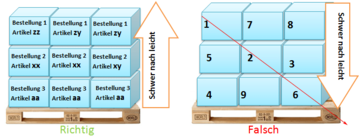
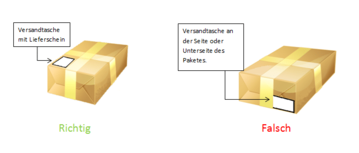
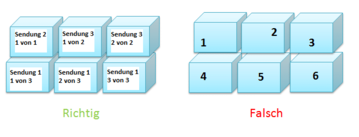
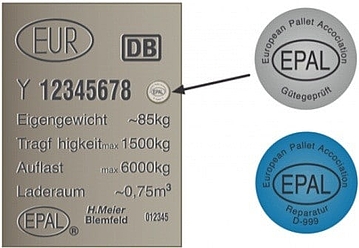
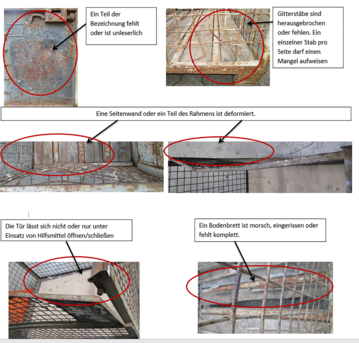
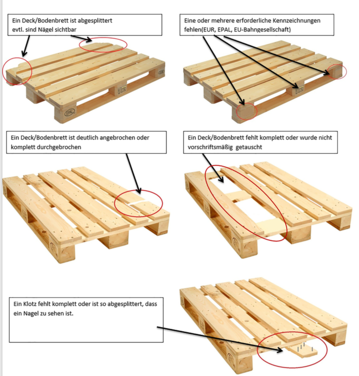
General Shipping and Packaging Regulations
I. Purpose
- These general shipping and packaging regulations aim to make the process between m-tec® mathis technik gmbh, hereafter referred to as m-tec®, and suppliers more efficient. The main focus is ensuring a smooth operation for both parties while reducing packaging waste for the benefit of the environment. Strict adherence to these guidelines allows for uninterrupted operations and prevents potential complaints. Furthermore, these regulations are part of our purchasing conditions and are not bound by the agreed delivery terms. The costs are included in the part price unless otherwise agreed.
II. Delivery
- If the following points are not considered, it is not possible to accept goods on the m-tec® premises, and the delivery will be refused. The supplier must also inform the delivery company of m-tec®'s safety instructions for visitors/forwarders and provide them in writing if necessary.
- Delivery address: The delivery address and the respective goods receiving zone on the m-tec® premises are specified in the order.
- Delivery times: The delivery times at m-tec® are:
- Monday to Friday from:
- 07:30 to 09:30
- 09:45 to 12:00
- 12:30 to 15:30 Outside these times, there is no goods reception, and the m-tec® factory gate remains closed for suppliers and carriers.
- Monday to Friday from:
III. Transport Safety
- The responsibility for ensuring that the goods arrive at the m-tec® goods reception area in perfect condition, at the agreed quality, and on time rests with the suppliers. The packaging (whether open or closed) must fully meet the protective requirements both qualitatively and quantitatively (see §§ 407 ff. HGB), while also safeguarding the goods from environmental influences like weather. Consideration must also be given to the duration and nature of the transport route, and the load unit must be secured against shifting.
IV. Physical Packaging
- When considering transport means and packaging materials, the principle is as much as necessary and as little as possible. Packaging materials that can be handled in an exchange system at goods reception, such as Euro pallets, grid boxes, and Euro pallets with frames, are preferred. It is important that both the packaging and storage materials are optimally utilized. Packaging should also allow for direct storage to avoid waste and unnecessary repacking. If you need examples from m-tec®, please contact us. Furthermore, individual items must be accessible for order picking.
V. Packaging Materials
- All packaging materials must be chosen based on their recyclability and reusability. Unnecessary secondary packaging should be avoided, but the protective function of the goods must always be ensured. It is at the supplier's discretion to decide the extent of packaging. For orders of 100 units or more, the supplier must form packing units (VPE). m-tec® recommends that 10-20% of the total quantity should be packed into each packaging unit. Other ratios may be accepted in individual cases with a plausible reason, but complete exclusion is not permitted. Plastic packaging units should only consist of PE (polyethylene) and weigh a maximum of 5kg per unit.
VI. Storage Aids
- All storage and transport aids should be designed as reusable if possible. They are divided into three categories. For deliveries from EU and third countries, suppliers must clarify import regulations in advance to ensure compliance when delivering to m-tec®. The utilization of transport aids must be optimized.
VII. Pallets
- m-tec® only accepts Euro pallets with standard dimensions of 1200mm x 800mm x 144mm (LxWxH) and a maximum height of 1500mm. The storage function of the pallet must be strictly adhered to, meaning that the outer dimensions of the pallet must not be exceeded, even for items like meters and rolls. Special cases must be discussed with m-tec® in advance. The maximum gross weight must not exceed 900kg. The criteria for pallet exchanges are defined in Appendix 1. m-tec® reserves the right, in individual cases, to select Euro or industry/Asia pallets (1000/1140mm × 1200/1140mm LxW) for transport, which comply with IPPC guidelines for the destination country. Exchangeable frames with the standard size 1200mm x 800mm x 200mm (LxWxH) in combination with Euro pallets are also accepted.
VIII. Euro Grid Boxes
- m-tec® only accepts grid boxes with the standard dimensions of 1240mm x 835mm x 970mm (LxWxH). The storage and stacking function must be maintained, and the maximum height of the grid box must not be exceeded. The top layer must also be protected against environmental influences. The maximum gross weight must not exceed 1500kg. The criteria for grid box exchanges are defined in Appendix 2.
IX. Cartons
- Each unit must be manipulable, meaning m-tec® only accepts cartons with a maximum gross weight of 30kg. The outer dimensions of a single carton must not exceed 600mm x 600mm x 500mm (LxWxH). If using straps, edge protection must be employed. The stacking function of equivalent cartons must always be ensured. If this is not technically possible, it must be clearly marked on the cartons. Only recyclable materials should be used.
X. Packaging Aids
- For safety reasons, metal staples and metal straps are not permitted for deliveries to m-tec®. Plastic tapes or straps must be used as a substitute. Cushioning materials should also be recyclable (e.g., paper/cardboard) and reusable. In exceptional cases, plastics may be used, but PVC (polyvinyl chloride) is not permitted. PP (polypropylene), PE (polyethylene), or PET (polyethylene terephthalate) are allowed, but their use should be minimized.
- The use of Styrofoam, especially Styrofoam pellets or chips, is not allowed.
XI. Arrangement
- Each packaging unit should only contain one article number. Wherever possible, the entire order should be packed onto one storage aid. The structured arrangement of different orders/items on one packaging aid is mandatory to ensure a smooth goods reception process. For multiple items on a pallet, the arrangement must follow the principle of heavy to light (from bottom to top), with a horizontal arrangement of similar items. If multiple articles are part of one order, they must be packed by type and clearly labeled with the respective m-tec® article number. The same applies to multiple orders loaded onto one packaging aid (see also 6.2.2). The supplier must also ensure that the packaging aid is optimally utilized to use resources efficiently.
XII. Documentation
-
The supplier is responsible for the completeness and accuracy of the documentation.
- Consignment note: A consignment note must be provided to the carrier for each shipment, which must include:
- The sender's and recipient's address, including the m-tec® goods receiving zone.
- m-tec® delivery times.
- The number of packages in the shipment.
- A note regarding the exchange of loading aids.
- Delivery note: Shipments without a delivery note will not be accepted by m-tec®. This also applies if the delivery note has been given to the carrier but not attached to the shipment as described below.
- Consignment note: A consignment note must be provided to the carrier for each shipment, which must include:
-
The delivery note must be attached to the top of the shipment in a designated shipping pouch, ensuring it remains visible and accessible.
-
Delivery notes to m-tec® must include:
- Sender and recipient information.
- Complete m-tec® order number in alphanumeric form.
- Supplier delivery note number, preferably as a barcode (2/5 code interleaved).
- Individual items in the order, including quantity, unit, and m-tec® part number.
If multiple orders are shipped together, an additional packing list is required with:
- The number of orders with complete m-tec® order numbers in alphanumeric and barcode format (Code 2/5 Interleaved/Industrial).
- Separate consignment numbers for each order.
- The number and logical numbering of individual packages for the respective consignment numbers on the packaging aid.
XIII. Long-term Supplier Declaration
- The supplier is obliged to send a long-term supplier declaration to m-tec® at the beginning of each year without being prompted. Even during the year, upon request, a supplier declaration and certificate of origin must be issued without delay. You can find current EU regulations here for more information.
XIV. Order Confirmation and Delivery Notification
- After receiving an order from m-tec®, the supplier must immediately send an order confirmation with a delivery date. The confirmed delivery date must be adhered to.
- However, this does not replace the delivery notification, which must additionally inform m-tec® of the exact delivery time at least three working days in advance.
XV. Choice of Carrier
- m-tec® reserves the right to select the carrier for the shipment if the delivery is sent to m-tec® on a non-prepaid basis. The carrier selection applies under the following conditions:
- The gross weight of the shipment exceeds 30kg.
- If due to size, transport aids such as Euro pallets with or without frames, grid boxes, or larger aids are required.
- The total shipment to m-tec® (including multiple orders if applicable) is relevant, not just individual orders.
- Exceptions are small deliveries in cartons with outer dimensions not exceeding 600mm x 600mm x 500mm (LxWxH).
XVI. Right of Non-Compliance (continued)
- m-tec® reserves the general right to charge the supplier for any additional expenses or costs incurred as a result of non-compliance with these general shipping and packaging regulations. These costs can also be directly deducted from the supplier’s current payment obligations to m-tec®. A violation will immediately affect the supplier's rating in the supplier evaluation and can result in a negative assessment of the supplier within m-tec® after repeated offenses.
XVII. Exceptions
- Exceptions to the general shipping and packaging regulations are only permissible if points I-VIII cannot be followed under any circumstances. Such exceptions must be clarified with m-tec® before confirming the order. In these isolated cases, especially with major suppliers, individual packaging requirements may differ from the general shipping and packaging regulations. Any deviations must be mutually agreed upon and will be legally binding for both parties, replacing the relevant part of the general shipping and packaging regulations.
XVIII. Information
- We are happy to provide any information you need to implement these regulations. We are open to discussing specific cases with suppliers to find solutions that are beneficial to both parties.
Appendix 1: Criteria for Non-Exchangeable Grid Boxes
- Grid boxes must be delivered in good overall condition without significant corrosion. This means they must have full load-bearing capacity and be free of major contamination, ensuring that the goods being transported are not soiled (a dust cover is recommended). The corner brackets for stacking two grid boxes must be intact and not deformed. The minimum labeling requirements are provided in Appendix 1.
A grid box is no longer exchangeable if any of the following criteria apply:
- Major damage or deformation affecting load-bearing capacity.
- Excessive rust or corrosion, compromising the structure.
- Missing or damaged components necessary for safe stacking.
Appendix 2: Criteria for Non-Exchangeable Euro Pallets
- Euro pallets must be delivered in good overall condition, with full load-bearing capacity and free from major contamination. Nails must not protrude from the pallet, and any broken boards or blocks should not be visible or exposed.
A Euro pallet is no longer exchangeable if any of the following criteria apply:
- The structure is compromised due to broken boards, blocks, or excessive damage.
- Protruding nails that pose a risk to the goods or handling personnel.
- Contamination that cannot be easily removed, including oil, chemicals, or other hazardous materials.